fake news
Latest

Facebook labels a post as false to obey Singapore misinformation law
Facebook has voluntarily labeled fake news and other misinformation for a while, but in Singapore it now doesn't have much choice. The social site has labeled a November 23rd post as containing "false information" to obey a Singapore law meant to curb the spread of fake info. The government claimed that Australian citizen and States Times Review blog owner Alex Tan had made "false" and "scurrilous" claims surrounding election rigging and the arrest of a purported whistleblower. Tan had initially refused the order and is now under investigation, although there may not be much Singapore can do when Tan doesn't live in the city-state.

Facebook just lost its last fact-checker in the Netherlands
Facebook is all about the fact-checking, except of course when it allows politicians to lie and, you know, affect the course of democracy. That was made clear in the Netherlands, where a newspaper called Nu.nl just quit as Facebook's fact-checking partner in the Netherlands. "What is the point of fighting fake news if you are not allowed to tackle politicians?" NU.nl's editor-in-chief Gert-Jaap Hoekman asked in a blog post. "Let one thing be clear: we stand behind the content of our fact checks."
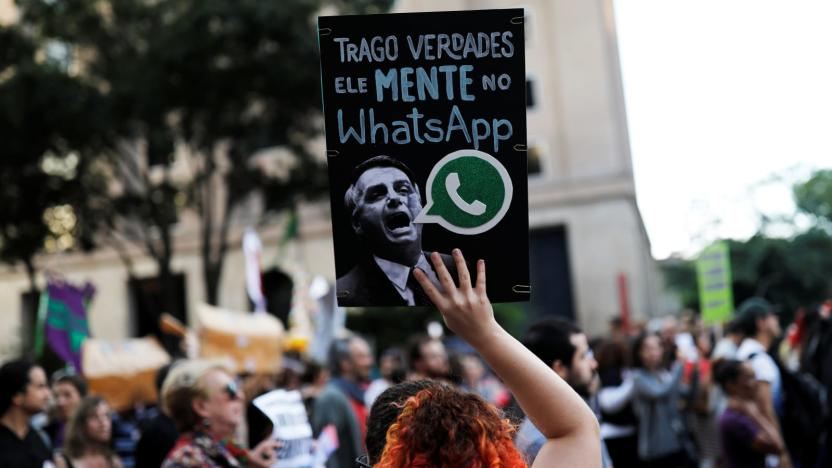
WhatsApp banned over 400,000 accounts during Brazil's election
There's little doubt that Facebook had to deal with a ton of fake news during Brazil's 2018 election, but now it's clearer just how much was on its plate. A document submitted to an investigation of misinformation during the presidential election has revealed that WhatsApp banned over 400,000 accounts in Brazil between August 15th and October 28th of last year. While WhatsApp's privacy-protecting encryption prevented the team from banning users based on message content, it used behavior to crack down on "automated and bulk messaging activities."

Wikipedia co-founder wants to give you an alternative to Facebook and Twitter
Two years ago, Wikipedia co-founder Jimmy Wales launched Wikitribune, an online publication meant to combat fake news with original stories by reporters and "citizen journalists." Wikitribune never really caught on, so now, Wales is shifting gears. Wikitribune is relaunching as WT:Social, a social-networking site and news sharing platform. He hopes it will be an alternative to Facebook and Twitter.

OpenAI published the tool that writes disturbingly believable fake news
In February, OpenAI announced that it had developed an algorithm that could write believable fake news and spam. Deciding that power was too dangerous to unleash, OpenAI planned a staged release so that it could offer pieces of the tech and analyze how it was used. Now, OpenAI says it has seen "no strong evidence of misuse," and this week, it published the full AI.
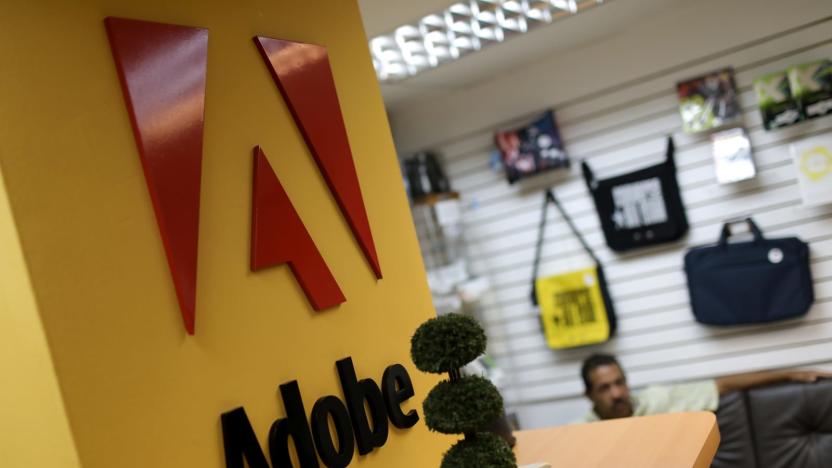
Adobe, Twitter and the New York Times team up to fight digital fakes
Adobe, Twitter and the New York Times are tired of seeing fake media propagate, and they're teaming up to do something about it. The trio has launched a Content Authenticity Initiative that aims to create a standard for digital media attribution. Ideally, you'd know whether or not a picture or video is legitimate simply by examining the file -- you'd know if it had been manipulated.

Mark Zuckerberg still won't ban 'political' ads from Facebook
For the better part of the past four years, Facebook just hasn't been able to keep its name out of the bad news cycle. The latest backlash the company is facing has to do with its political ad policies, which essentially allow politicians to spread misinformation on the site. CEO Mark Zuckerberg addressed the topic during Facebook's Q3 2019 earnings call today, saying he doesn't agree with "critics" who claim the company won't ban these controversial ads because "all we care about is money." Zuckerberg said ads from politicians will be less than 0.5 percent of Facebook's revenue this year, noting that the $5 billion FTC fine was more than 10 times more costly for the company.
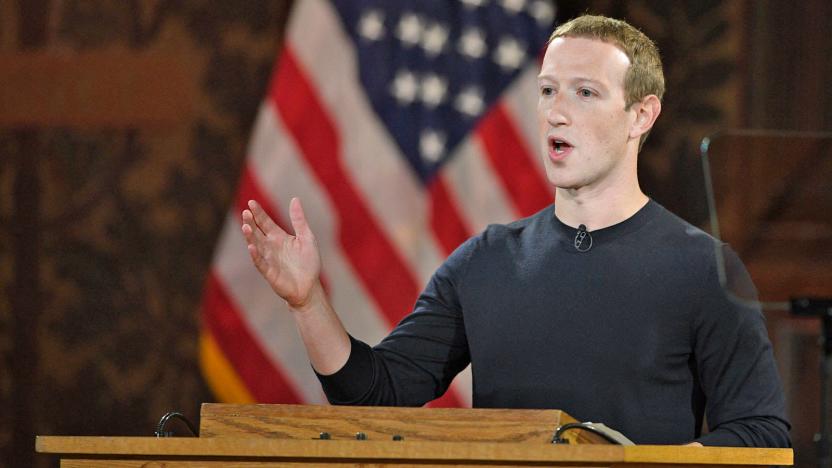
Mark Zuckerberg defends free speech on Facebook
Facebook CEO Mark Zuckerberg took to the stage at Georgetown today to defend freedom of expression. Most recently, Facebook has been criticized for allowing politicians to post misleading ads. But Zuckerberg is calling for more free speech and cautioned against "potentially cracking down too much" on social networks.

Facebook pulls hundreds of propaganda accounts linked to PR firms
Facebook has removed 211 accounts on its main platform, 107 Pages, 43 Groups and 87 Instagram accounts for inauthentic behavior. More importantly, the social network's investigation revealed that their efforts were coordinated, and that they were all linked to PR firms in the UAE (Charles Communications), Egypt (Flexell) and Nigeria (MintReach). The company said in its announcement that these takedowns are part of its ongoing investigation into coordinated inauthentic behavior in the region. In August, it also took down hundreds of accounts and Pages traced back to marketing firms in the UAE and Egypt.
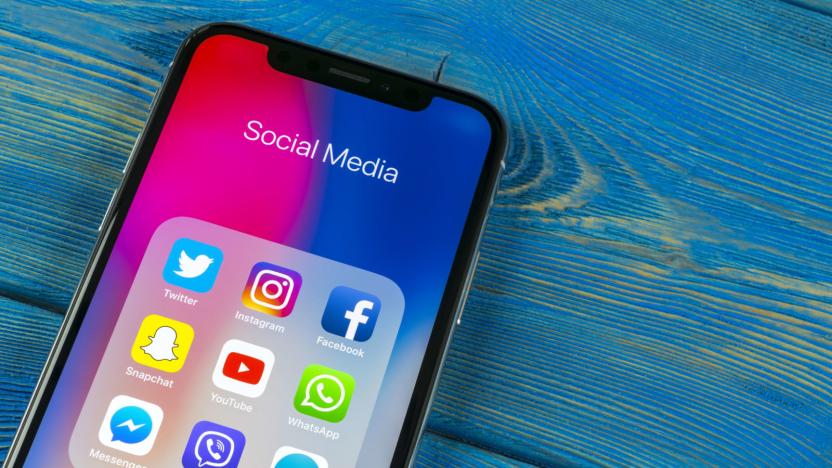
Study: Americans believe social networks make the news worse
You're not alone if you think social networks are degrading the quality of news. A Pew study indicates that 62 percent of American adults believe social media companies have "too much control" over news, and 55 percent believe these companies have created a "worse mix" of news through their feed algorithms and other editorial choices. Not surprisingly, the survey respondents pinned it on the quality of the news that surfaced in their social streams.
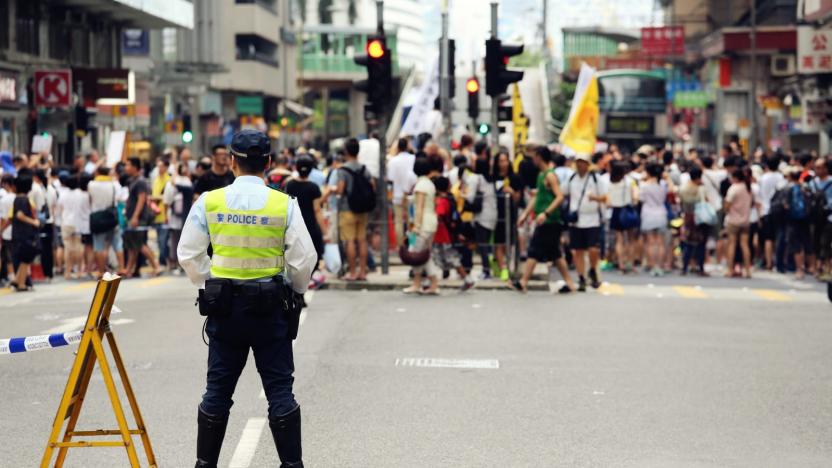
Fake news campaigns are a growing global problem
Disinformation is a major threat to tech companies, society, even democracy -- and it's only getting worse. In 2019, disinformation campaigns occurred in at least 70 countries, a significant jump from 28 countries in 2017. That's according to a new report by researchers from the Oxford Internet Institute at Oxford University. The report reveals just how widespread the problem of internet-based false information and propaganda has become.
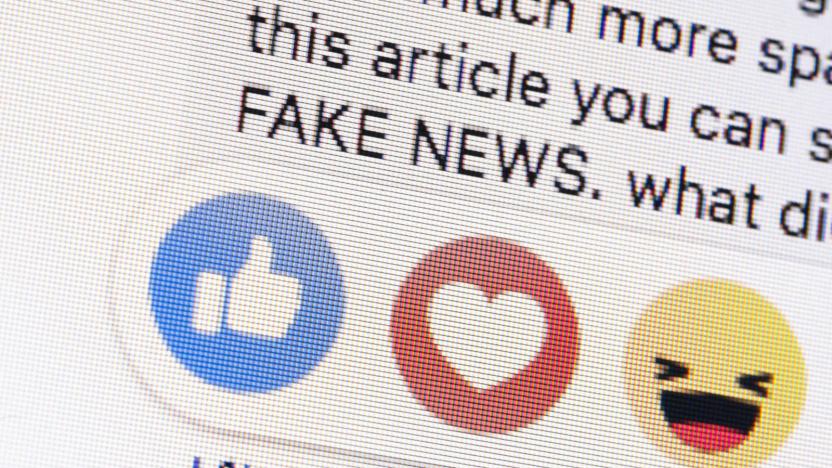
BBC, tech giants will fight fake news with an 'early warning system'
Tech companies know disinformation remains a major threat, and they're forming an alliance with a media giant to help fight the online spread of falsehoods. The BBC has partnered with Facebook, Google and Twitter on a strategy to fight fake news and other disinformation campaigns. The effort will include an "early warning system" that lets organizations tell each other when they find false content that "threatens human life or disrupts democracy." Ideally, this helps companies quickly neuter disinformation before it has much of a chance to spread.
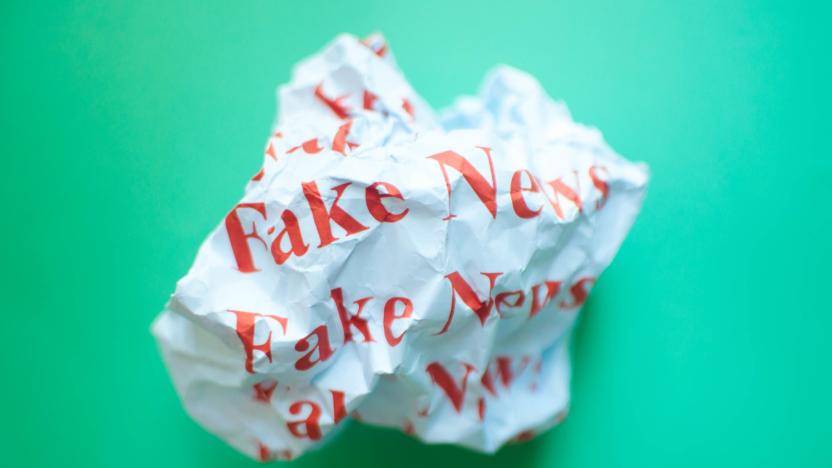
NYU report lists likely social media disinformation tactics for 2020
The 2020 US presidential election will serve as the ultimate test for social media platforms like Facebook and Twitter to prove they can combat fake news. But could they be fighting the last war? A report released by NYU's Stern Center for Business and Human Rights argues that relatively new tactics like domestic fake news operations, phony memes on Instagram and deepfake videos will play a bigger role in the next election.
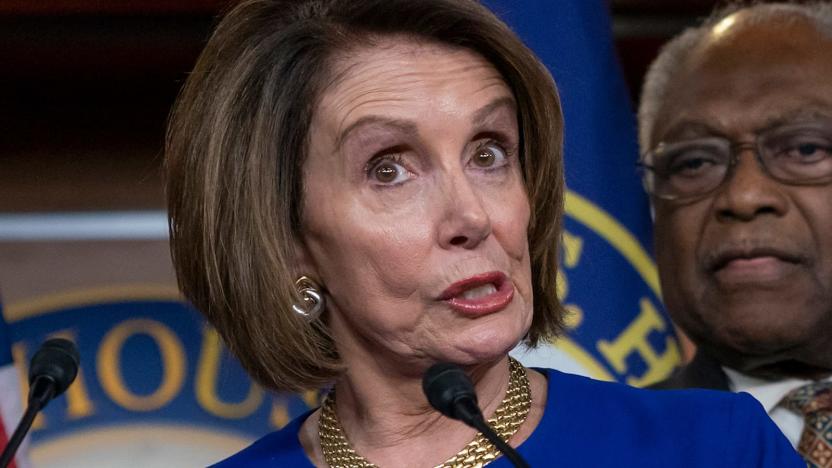
Facebook teams up with Microsoft and MIT to fight deepfakes
With deepfakes expected to pose a major challenge in the upcoming 2020 election and beyond, Facebook detailed one way in which it plans to take on the problem. As part of a new partnership that involves, among others, Microsoft, MIT and the University of Oxford, Facebook plans to invest more than $10 million to take part in an industry-wide effort to fight deepfakes. The initiative is called the Deepfake Detection Challenge (DFDC). It aims to create open source tools that companies, governments and media organizations can use to better detect when a video has been doctored. Facebook's contribution to the project includes hiring actors to create videos researchers can use to test the detection tools they create.
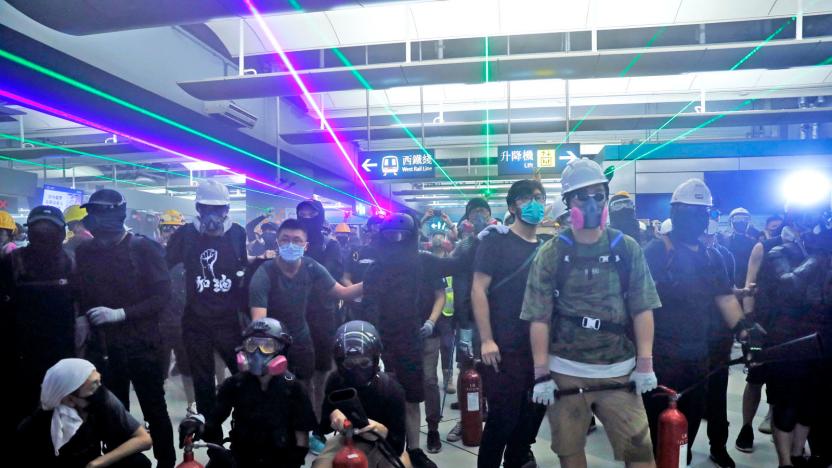
YouTube pulls hundreds of channels tied to Hong Kong influence campaign
On Monday, both Twitter and Facebook announced they'd blocked accounts from China that were involved in disinformation attempts around protests in Hong Kong. Now YouTube revealed it has disabled 210 channels this week that "behaved in a coordinated manner while uploading videos related to the ongoing protests in Hong Kong." Google Security's Shane Huntley did not identify a source for the channels in the post, but said this discovery was "consistent" with Facebook and Twitter's actions related to China. YouTube told Reuters that unlike Twitter, it does not have any plan to change advertising policies for state-controlled media outlets, however it will soon expand labeling of state sponsored outlets to the region. Also unlike Twitter, it did not release any notes about the accounts or the contents of their posts, so we'll just have to speculate about what those channels looked like.

Facebook pulls propaganda accounts demonizing Hong Kong protesters
It's not just Twitter cracking down on attempts to undermine Hong Kong protesters through social networks. Facebook has pulled seven Pages, five accounts and three Groups allegedly involved in "coordinated inauthentic behavior" meant to blast Hong Kong demonstrators, including the use of fake accounts The move came after Twitter shared info of suspicious activity, prompting an investigation. The perpetrators routinely made dubious claims about street marchers, likening them to terrorists and even "cockroaches."

Instagram users can now flag false content
Beginning today, Instagram users can report content that they believe to be false. Instagram will use those flags to better understand misinformation on the platform and to train its AI to spot false content. In time, Instagram will use the feedback, as well as other "signals" -- like how old a post is and the account's previous behavior -- to determine if a post needs to be reviewed by third-party fact checkers. This is slightly different than the pilot program Instagram launched in May, which allows users to flag false content for review by fact checkers. For now, that will remain a pilot.
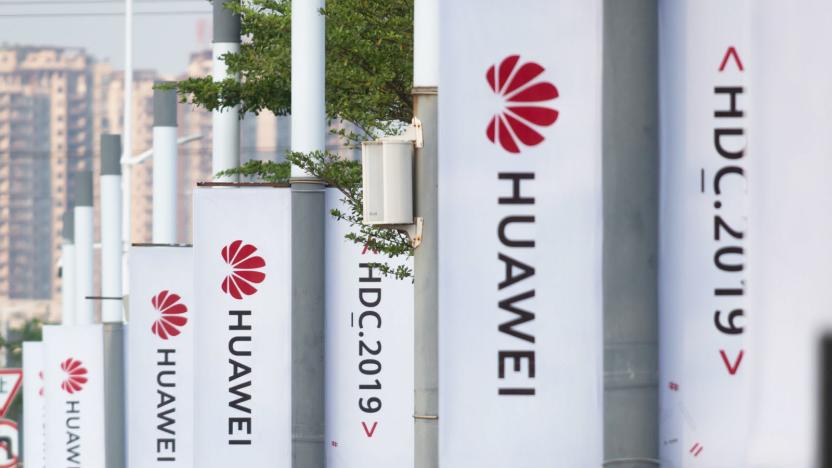
Huawei technicians may have helped African governments spy on opponents
An investigation by The Washington Post claims Huawei technicians helped African governments spy on domestic political opponents. According to the report, Huawei employees helped authorities in Uganda intercept encrypted messages and allowed police in Zambia to locate opposition bloggers. Such claims could validate the Trump administration's concerns about the use of Huawei technology in the US, but Huawei told The Washington Post it has "never been engaged in 'hacking' activities."
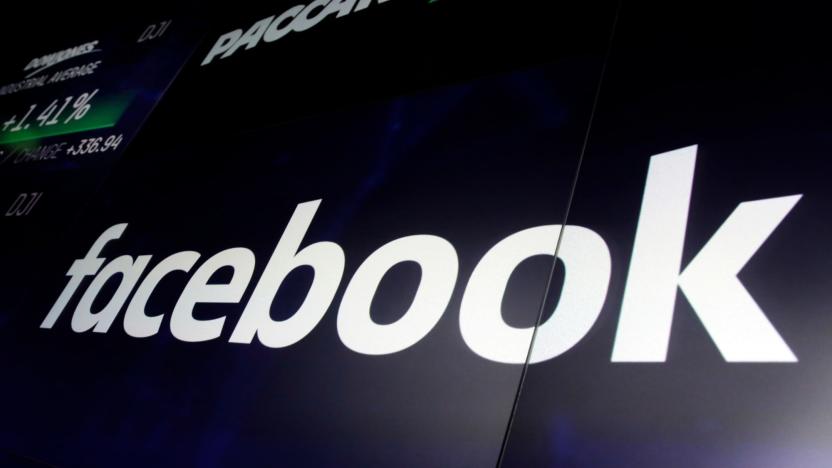
Facebook defends decision not to ban fake news from politicians
Facebook says it wasn't its job to stop fake news circulated by actual politicians in the months leading up to Australia's federal election. The nation's Labor Party suffered resounding losses this spring, which some are linking to the deluge of social media posts that falsely claimed that the party wanted to impose hefty "death taxes". In letters reviewed by Guardian Australia, Facebook vice-president Simon Milner told outgoing Labor Party secretary Noah Carroll that the misinformation didn't violate the platform's community standards.

Facebook fact-checker says more work is needed to curb fake news
Facebook knows its platform is awash with fake news, and since December 2016 -- after facing criticism about its failure to stem the spread of fake news in the run-up to the presidential election -- the company has been working with a number of fact-checking firms in a bid to review and debunk false information on the site. One such firm, UK fact-checking charity Full Fact, has now released a report outlining its work and findings from the first six months of its partnership with the tech giant.








